Contributors
James DeFilippis is Assistant Professor in the Edward J. Bloustein School of Planning and Public Policy at Rutgers University.
Robert Fisher is Professor of Social Work and Director, Urban and Community Studies at the University of Connecticut.
Kim Geron is Associate Professor of Political Science at California State University East Bay.
James Jennings is Professor of Urban and Environmental Policy and Planning at Tufts University.
Julia S. Jordan-Zachery is Assistant Professor in Black Studies at Providence College.
Michael Liu is a Senior Research Associate at the Institute for Asian American Studies at University of Massachusetts Boston.
David McBride is Professor in African and African-American Studies Department and Faculty Associate in the Center for Health Policy Research at Pennsylvania State University. His chapter is based on a study supported by a grant from the Robert Wood Johnson Foundation Investigator Award program.
Don Mitchell is Distinguished Professor of Geography and Chair of the Geography Department in the Maxwell School at Syracuse University.
Tony Roshan Samara is Assistant Professor of Sociology and Anthropology at George Mason University in Fairfax, Virginia.
Eric Shragge is Professor in the School of Community and Public Affairs at Concordia University, and lives in Montreal, Canada.
Robert W. Smith is director of Policy and Planning for the Massachusetts Executive Office of Labor and Workforce Development and former research director for Community Labor United in Boston, Massachusetts.
Published by Lexington Books
A division of Rowman & Littlefield Publishers, Inc.
A wholly owned subsidiary of The Rowman & Littlefield Publishing Group, Inc.
4501 Forbes Boulevard, Suite 200, Lanham, Maryland 20706
http://www.lexingtonbooks.com
Estover Road
Plymouth PL6 7PY
United Kingdom
Copyright 2010 by Lexington Books
All rights reserved. No part of this book may be reproduced in any form or by any electronic or mechanical means, including information storage and retrieval systems, without written permission from the publisher, except by a reviewer who may quote passages in a review.
British Library Cataloguing in Publication Information Available
Library of Congress Cataloging-in-Publication Data
Jennings, James.
Urban spaces : planning and struggles for land and community / James Jennings and Julia S. Jordan-Zachery.
p. cm.
Includes bibliographical references and index.
ISBN 978-0-7391-3744-4 (cloth : alk. paper) ISBN 978-0-7391-3746-8 (electronic)
1. City planningUnited States. 2. Community developmentUnited States. 3. Corporate powerUnited States. I. Jordan-Zachery, Julia Sheron. II. Title.
HT165.52.J46 2010
307.1'2160973dc22 2009032409
Printed in the United States of America
 The paper used in this publication meets the minimum requirements of American National Standard for Information SciencesPermanence of Paper for Printed Library Materials, ANSI/NISO Z39.48-1992.
The paper used in this publication meets the minimum requirements of American National Standard for Information SciencesPermanence of Paper for Printed Library Materials, ANSI/NISO Z39.48-1992.
Foreword
This book is a welcome addition to an underdeveloped discussion concerning topics that are essential but only fitfully approached: the relationships among contemporary land use, low-income urban communities, and social justice. The fitful approach to this arena of discussion is due not to lack of importance but rather to lack of a clear direction in which to take the discussion. While the issue of what the coeditors call class warfare in land use had obvious importance for intellectual engagement during earlier discussions of displacement due to redevelopment (as under the urban renewal and interstate highway programs) or of gentrification (a topic of great visibility in the 1980s and 1990s), more recent iterations of the nature of the phenomena and critical associated dilemmas have not been explored systematically. This edited volume goes a long way toward reframing the debate regarding land, social status, and social justice in terms relevant to the twenty-first century. It does so in large part by first addressing a critical U.S. decision concerning the public sectors right to appropriate private land for the sake of corporate development, and then by offering a series of case studies that explore dimensions of conflict in a variety of places.
These case studies serve to highlight the fact that, regardless of whether relevant debates continue to take place in academia, in actual urban communities groups of people still undertake determined action to protect their communities and their land. This is true, the assorted authors illustrate, in places ranging from Cape Town, South Africa, to California, among populations including both resourceful black communities in post-hurricane U.S. Southern states and determined residents of Asian ethnic enclaves in Boston and Los Angeles. The volume considers the applicability of classic theories about conflict and change in the light of the present, covering such critical topics as the potential success and limitations of equitable planning, one of the dominant theoretical paradigms concerning social justice in planning; the potential of community benefit agreements and the dangers of the landmark Kelo v. New London decision; and, last but not least, the pros and cons of community development as a paradigm for social change. All in all, this volume is a fine treatment of a number of topics of critical importance, presented in a series of engaging and informative case studies and reflective essays.
June Manning Thomas, FAICP
Ann Arbor, Michigan
Introduction
James Jennings and Julia S. Jordan-Zachery
Many low-income neighborhoods in cities across the United States are enmeshed in class warfare with powerful corporate interests. The ownership and management of land in these places is a key basis for urban political conflict. Although these impoverished spaces have a history of disinvestment and neglect on the part of government and the corporate sector, and are generally approached by many scholars as devoid of worth, land in these places has become extremely valuable. Urban land that was once discardedconsidered blighted in some instancesis now critical for big capital. Some low-income neighborhoods have become important for big capital because they are close to downtown areas, are places that could house elite workers of corporations, or are spaces that could be used for building large scale economic projects and megaplexes considered essential for the interests of government corporate partnerships.
This development has triggered urban political conflict for the control of land and the future of some neighborhoods. Examples of this include the struggle between community and corporate interests in Brooklyn, New York regarding the building of a new sports stadium for the New Jersey Nets. In Boston, conflict also occurred over the building of a research biotechnology laboratory to experiment with deadly disease in an area adjacent to working-class neighborhoods. Part of the rationale for using urban land to benefit corporate interests rather than community desires is that benefits will ultimately trickle down and change the context of economic distress. Some scholars argue that cities can do none other than to pursue such policies favoring big business interests, even when neighborhood assets and resources are used to subsidize these development policies. Thus, redistributive issues are approached as economically unfeasible. Others point out that cities can indeed become more competitive in the midst of globalization, and without major corporate giveaways, if living and working conditions for all people in its neighborhoods are improved. Many individuals, including the contributors of this anthology, question the rationale of trickle-down benefits and point out that cities can become more competitive in the midst of globalization, even without major corporate giveaways, if living and working conditions for all people in its neighborhoods are improved. Further, it is important that residents in vulnerable urban neighborhoods have input into defining concrete benefits rather than leave this issue vague.


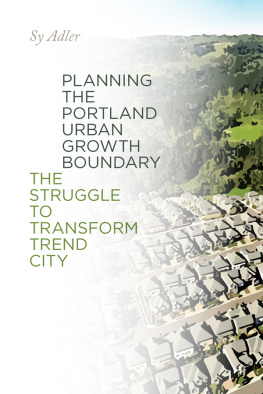
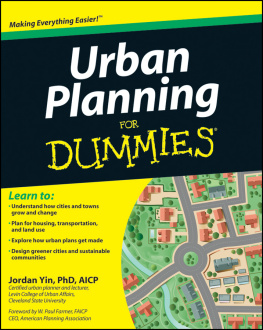
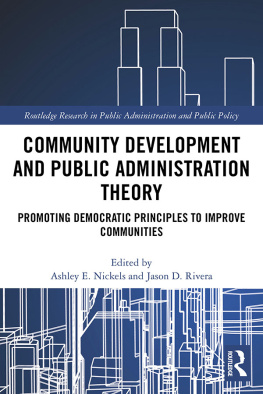
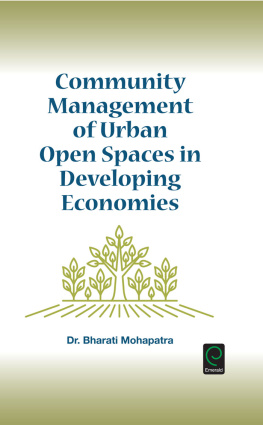
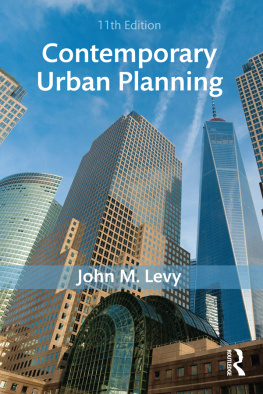
 The paper used in this publication meets the minimum requirements of American National Standard for Information SciencesPermanence of Paper for Printed Library Materials, ANSI/NISO Z39.48-1992.
The paper used in this publication meets the minimum requirements of American National Standard for Information SciencesPermanence of Paper for Printed Library Materials, ANSI/NISO Z39.48-1992.